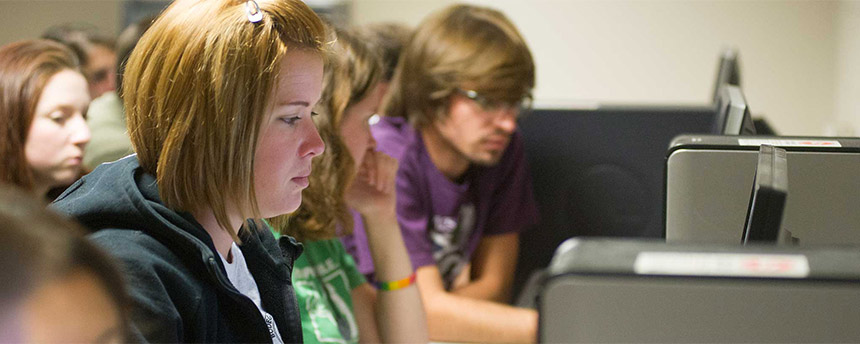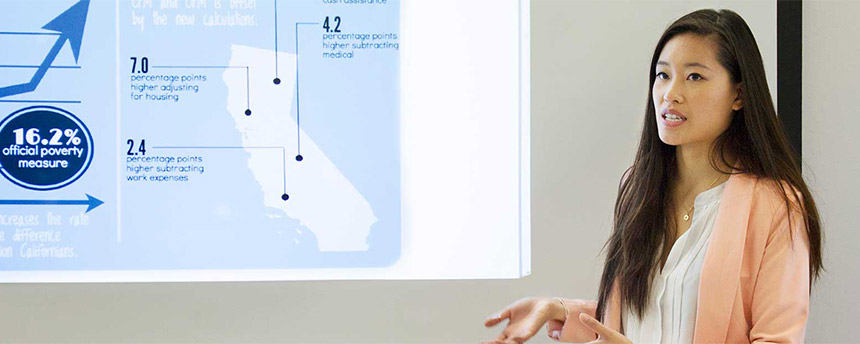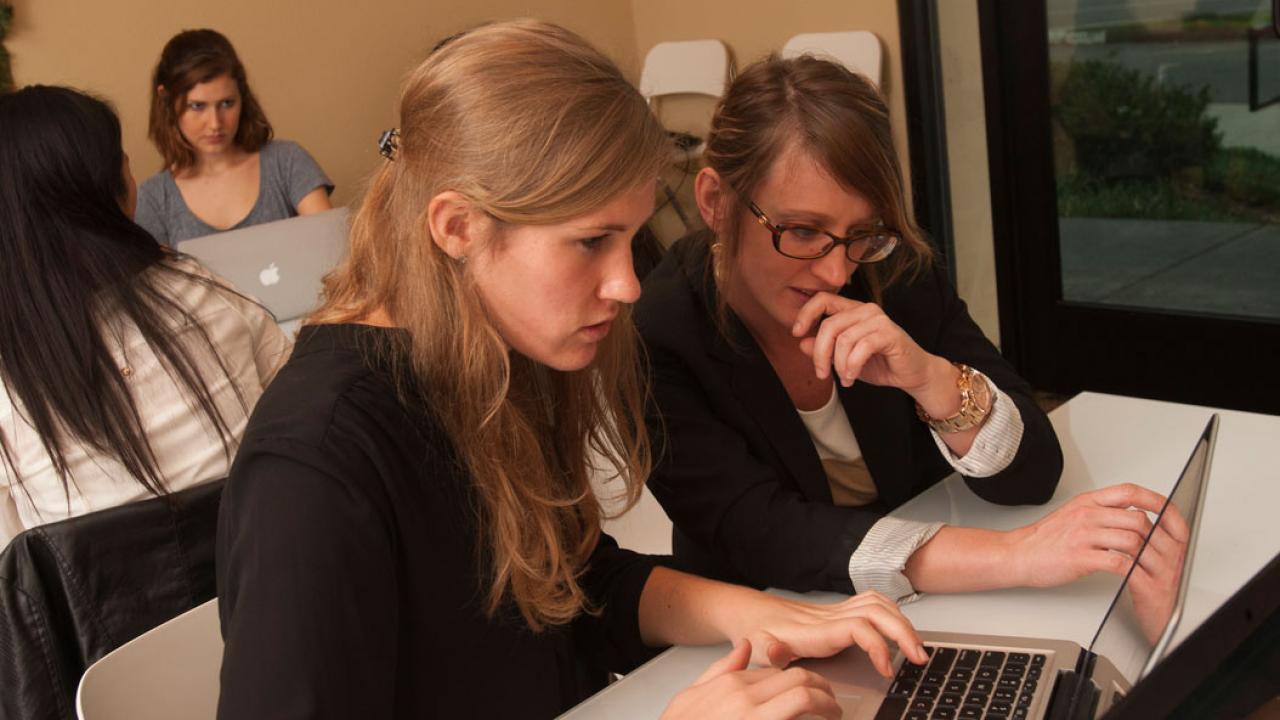Quick Summary
- Students should take advantage of research and internship opportunities on campus and in the region
- Internship and career centers offer career guidance, including how to interview and write a résumé
- No matter your major, get a leg up in the job market by learning quantitative skills
Connecting the dots between a university education and a rewarding career can be challenging for undergraduate students. But by taking advantage of many opportunities at your university, you can prepare yourself for job success. Look into doing research with a professor or an internship with a company in your area. And learn how to turn internships into jobs after you graduate. Here are concrete steps you can take:
1. Find research opportunities

While you are an undergraduate, do research on campus or through an off-campus internship to improve your future career prospects.
- These experiences can help you narrow your interests and identify your abilities.
- The opportunity can provide skills valued by employers and allow you to interact more closely with faculty mentors as well as with inspiring graduate students.
- Your university mentors can become valuable in helping you get jobs over your career because they know your strengths and can be your advocate. Use them as references and ask them to keep an eye out for you after you graduate.
Source: UC Davis Undergraduate Research Center
2. Visit your internship and career center early and often

Students and recent graduates who want to obtain their dream job learn to connect to their internship and career center. Start long before you graduate to build a résumé.
According to a story on News 10 ABC Sacramento, students should find internships and jobs that help test ideas of what they might think they want to do. You can also use the center for career guidance, help with résumés and job interviews. Learn to interview by doing the real thing with many employers who visit your campus throughout the year. You might even get a job!
Marcie Kirk Holland, director of the UC Davis Internship and Career Center, says it’s a good time for finding jobs through your university. With a better economy, recruiters for management training programs are returning to campuses seeking bright and motivated students, and companies are offering better positions than in past years.
Sources: News 10 ABC Sacramento, ”Tips for new grads looking to land their first jobs,” Gabrielle Karol, May 21, 2015; Wall Street Journal, “Class of 2015 is summa cum lucky in the job market,” Josh Zumbrun, May 28, 2015
3. Improve your LinkedIn profile

Many employers are trusting social media to find the best candidates for their companies and nonprofits. Start your profile on LinkedIn early in your college career and build on it with the experiences you have in college. At the same time, build your network of acquaintances in the work world over time so that when a job comes up that fits your profile, they will know where to find you. LinkedIn visited UC Davis students to give them ideas on how to improve their online eligibility for a job. Here were some suggestions:
- Obtain a professional-looking photo.
- Use the same keywords in your personal statement as are found in job applications, so that employers and recruiters can find your online profile more easily.
- Make your LinkedIn profile more interesting with blog postings and videos.
- Use previous jobs to list skills that translate to your intended career: time management, meeting deadlines, handling difficult customers and peers.
- Add courses, class projects and videos that show a personal side and thus provide employers a view into your deeper interests.
- Use your online profile to show what you do in your everyday life.
Source: The Sacramento Bee, “LinkedIn takes job help to UC Davis,” Claudia Buck, April 25, 2015
4. Broaden your quantitative skills

All college students, but especially social sciences and humanities majors, can get a leg up on their peers by learning to analyze data.
UC Davis offers a set of classes, called the Data Studies Program, for its liberal arts students and others to learn how to analyze “big data,” an increasingly important skill in the job world.
“Introductory Data Exploration with R,” the gateway course for the program, is being offered spring quarter 2016. Students will get their “hands dirty with the same tools used by leading organizations like Microsoft and Google” in this gentle introduction to data. At the same time, they will learn how to ask and answer meaningful questions about data.
Interested UC Davis students can take on data analysis with a set of courses offered in the 2016-17 academic year. Several from last summer’s pilot program gave the classes a thumbs up.
Students learn how to look at demographic facts and figures, information from mobile phone use, businesses’ customer profiles and even social media postings. The skills gained in understanding how to interpret data can be used for research in many fields.
Source: UC Davis Strategic Communications news, “Data Program will give liberal arts majors a boost in employment,” Jeffrey Day, June 4, 2015
5. Turn your internships into jobs

Explore what you really want to do by balancing your schoolwork with internships, paid or unpaid, that you can find through your internship center and online. Some of these will help you decide what you don’t want to do, while others may lead to your first job, according to columnist Susan Adams of Forbes. She offers this advice:
- Use your school’s job postings to find listings.
- Search listings sites like Internships.com, looksharp.com and InternQueen, and specialty sites like freefashioninternships.
- Look on LinkedIn, using the “advanced search” tab and typing in the word “Internship.”
- Make a LinkedIn profile if you don’t already have one.
- Treat every internship as though it’s a job interview. In other words, impress your bosses by being a model employee worth recommending for a job.
- Keep working while going to school after your summer break.
Source: Forbes, “How to turn your internship into a job: Three real-life stories,” Susan Adams, June 23, 2015
